Dear Sharing Garden Coordinators,
First, I would like to congratulate you on your hard work, innovation, and obvious compassion for community. Good work deserves good thanks, whether it happens in your own backyard or across the country!
Upon seeing your Sharing Garden featured in the most recent ACGA newsletter I was pleased to find a community garden project similar to the organization I am a VISTA Member with in Southwest Montana. I was even more pleased to learn that your project operates in a setting equally as rural as my own! (I hope that you will take the time to look into our project, called
Jackson's Garden, in Sheridan Montana.) Despite my best efforts, I have found evidence of very few gardens like yours and ours. I'm not sure if this is simply lack of exposure, or if we really are as rare as I think. But either way, it's a concept that I think deserves much more attention that it has received.
I believe that there has been too little attention paid to the
rural community gardening. Because of the the wider availability of land and prevalence of traditional skill sets in subsistence agriculture, the concept of small plot community gardening as it has been established in urban settings seems hardly applicable. The truth is that the reasons for community gardening in a rural setting are different, though related, to those of urban settings. And because of this, and many misconceptions about rural lifestyles, the community gardening movement tends to overlook us.
I believe, as I think you might, that a Sharing Garden, or Communal Gardening as we refer to our project, is the most applicable model to rural settings, and I'm quite convinced that this model needs to be promoted and shared with other communities. While I see some differences in the way our two projects are run, the basic concept is the same - grow your food together and you grow more food, and build more community. My observations lead me to believe that there are some very specific aspects of rural lifestyle that make this model not only possible but the most effective method of putting food on our community's table.
Yet sadly, community gardening advocates and researchers pay little attention to the communal or shared gardening method
and rural community gardening in general. Did you know that the last peer reviewed academic paper to appear on rural community gardening was published in 1999? Since then, the research community, which has time and time again proven the benefits of urban community gardening, has done little more than mention our cause along side their larger concerns.
There are few things that I think we, as advocates for rural communities, can and should do. The first is that I think we need to reach out to similar projects and similar communities, and establish a network of rural community gardens through which we can share insights, ideas, troubles, and celebrate our unique and profound achievements together. To this end, I have contacted the American Community Gardening Association and requested information regarding rural community gardens and sharing gardens and hope to begin bringing together similar projects in an online community soon.
But we also need to be outspoken advocates for this concept within the greater community gardening and food security movement. In my mind and perhaps in yours, this method is all but proven to increase food security, build healthier people, and bring together communities - and we we need to share this! In June, I will be presenting a case study of Jackson's Garden at
Food and Agriculture Under the Big Sky, a joint conference of three research societies centering around food and agriculture. I would like to use this opportunity to spark the discussion about rural community gardening. You can help by sending me information on your organization and work that I can use as part of my presentation. I sincerely hope that we will be able to engage the research community in a dialogue about the importance of rural community gardening.
What our projects do for our communities is no simple, easy to summarize thing. I am constantly challenged when visitors to Jackson's Garden ask, "So what is this place???" - because the simple answer ("It's a community garden") just doesn't seem to sum it up quite right. My hope is that by our continued dialogue and sharing of ideas, we can establish a concept as well recognized as that of the individual plot community garden. But my greatest hope is that someday, sharing gardens like yours and ours will be a regular, recognized feature of the rural lifestyle.
I think that the seeds our communities have sown to protect their own food security can be harvested as part of a larger movement that will benefit many, and I hope you will agree.
Yours in Solidarity,
Marguerite Jodry
AmeriCorps VISTA
Ruby Valley Community Food Project
Sheridan, MT
(406) 596-0492

















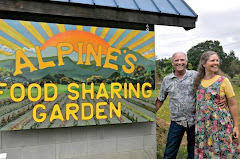









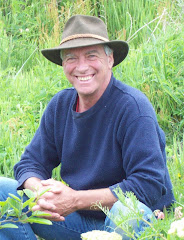
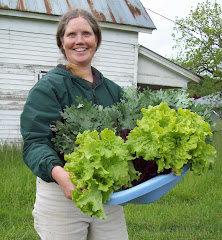
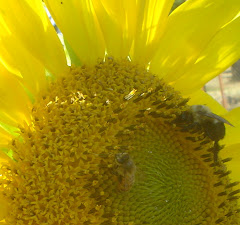

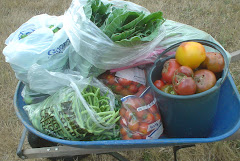


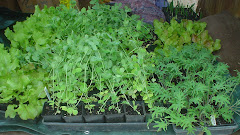
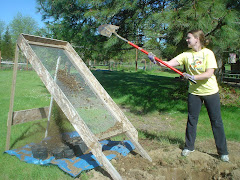

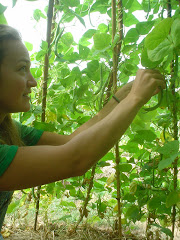
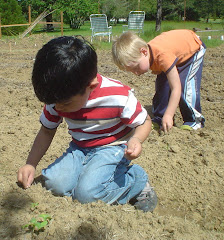


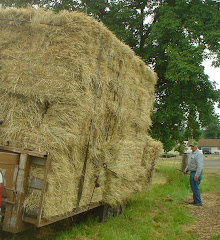





I wish this catches on like a wildfire and spreads around the globe so our soils can be rebuilt from the salty hell of synthetic fertilizer.
With love, sharing and community, I'm imagining . Thank you Chris and Llyn for your very inspirational work/fun.
Sincerely Tonny